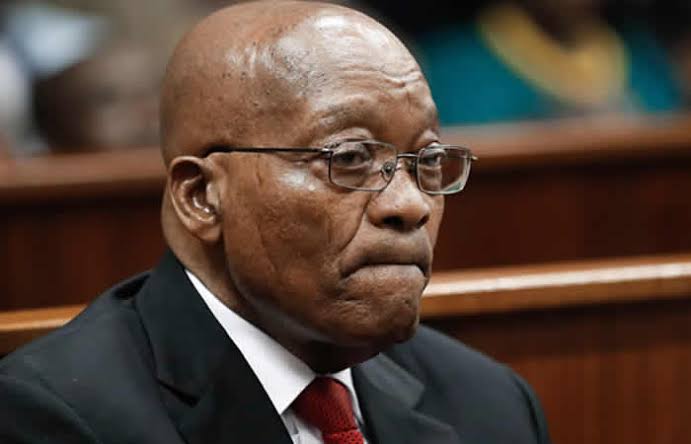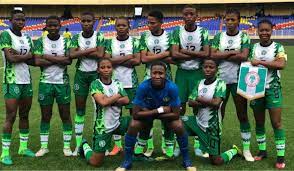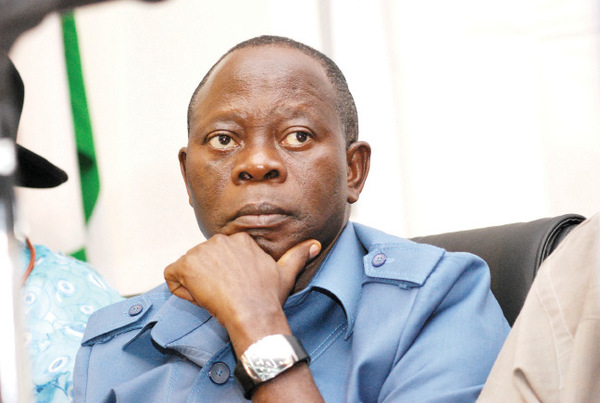Can Matamela Cyril Ramaphosa, 65, newly elected leader of the African National Congress (ANC) who’s likely to emerge as the next South African President cleanse the Aegean stable? Will his assumption of the ANC mantle of leadership prepare the way for the recall of Jacob Zuma just as it happened to Thabo Mbeki? These are troubling riddles, writes TONY IYARE
As the frills and thrills of the recently held national conference of South Africa’s dominant party, the African National Congress (ANC) recedes, the reality of whether its newly elected leader, Matamela Cyril Ramaphosa, politician, businessman, activist and trade union leader can deliver to cleanse both the party and one of Africa’s most prosperous countries from the wrought of the Jacob Zuma years dawns.
Ramaphosa, one of South Africa’s richest men whose wealth is put at $675 million by Forbes had defeated his rival, Nkosazana Dlamini-Zuma, former chairperson, African Union and ex-wife of President Jacob Zuma with 2,440 delegates to 2,261 to emerge President of the ANC in a hotly contested election at its 54th conference, evoking the fractious nature of the ruling party.
No doubt, with the endorsement from heavyweights like Zweli Mkhize, Bheki Cele, Education Minister, Angie Motshekga, former Finance Minister, Pravin Gordhan, former KwaZulu-Natal Premier, Senzo Mchunu, Congress of South African Trade Union (COSATU), the National Union of Mineworkers (NUM) as well as Northern Cape, Eastern Cape and Gauteng provincial ANC leadership, Ramaphosa was visibly poised to clinch victory in an election in which Jacob Zuma also backed his former wife.
In fact, since his election as deputy president of the ANC in 2012, speculations have been rife that Ramaphosa, who was born in Soweto, Johannesburg on November 17, 1952 would run for the presidency of ANC and eventually succeed Zuma. His elevation as South Africa’s deputy President in 2014 and subsequent appointment as chairman of the National Planning Commission were like some dress rehearsals.
Will he commence the process of social re-engineering to reposition the ANC? Quite frankly, many are now beginning to set an agenda for the post Jacob Zuma years.
Ramaphosa’s election as ANC President perhaps should hopefully provide the basis for house cleaning of the ANC itself and make a leeway for the possible recall of Jacob Zuma who is harangued by 700 corruption charges and has been fingered for the raging “institutional collapse” in the country. Zuma has also virtually enmeshed the party in the mud.
Unfortunately, he prefers to blame the trade unions for his undoing. “In an unprecedented move, we saw in the past few months our alliance partners marching side by side with right wing forces who are historical opponents of our democratic revolution, calling on the President of the ANC to step down”, Zuma fumes.
Members of the ANC cannot also be exculpated in the slurred party’s image for consenting to keep a heavily soiled Zuma as their leader for this long. But whether Ramaphosa, ANC chief negotiator during South Africa’s transition to democracy who is said to have 32 properties and sits on the board of major companies, can walk his talk on corruption is another kettle of fish. Even the process that produced him was fraught with accusation of “intimidation, bribery, cheating and murder” from both sides.
That’s why Zwelinzima Vavi, secretary of the South African Federation of Trade Unions does not think there was anything to chose between Ramaphosa and Dlamini-Zuma. This he reasons is a choice between the devil and the blue deep sea.
“The only difference between the two main contenders was that Ramaphosa represents mainstream monopoly capitalism, of which he is a member while Dlamini Zuma represents the thieves and murderers of the corrupt cabal around her former husband”, he says.
Task ahead is visibly daunting. “This conference has resolved that corruption must be fought with the same intensity and purpose that we fight poverty, unemployment and inequality”, Ramaphosa told delegates at the end of the five-day conference. “We must also act fearlessly against alleged corruption and abuse of office within our ranks”.
Not particularly heart warming, is the position of the conference on the raging land question, which is not only ambivalent but reflects a deliberate attempt to steer off the minefield by ingratiating itself to the black majority and at the same time avoiding the banana peel that got former Zimbabwean President, Robert Mugabe into trouble with the West and big business.
“The conference has resolved that expropriation of land without compensation should be among the mechanisms available to government to give effect to land reform and redistribution”, the new ANC President said, disclosing that “It has also been resolved that we ensure that we do not undermine the agricultural production or the economy – that is what is important”.
The expectations are certainly very high. The ANC needs to be salvaged from its putrid image that occasioned the strings of electoral defeats which saw it lose control of vital constituencies in Johannesburg and Pretoria.
Its political manoeuvres and “opportunistic brinkmanship” which saw the sidetrack of the land reform programme by Nelson Mandela, Ramphosa and key elements of the ANC in the negotiation for majority rule is seriously haunting the party.
It is intriguing how the Black population, whose condition have largely not gone beyond that of hewers of stone and drawers of water, can be fundamentally empowered without addressing the land question in a country where over 70 per cent of choice lands are owned by the White population?
This absence of massive opening in the economy to the Black population since majority rule more than two decades ago has led to the back clash and misdirected aggression on fellow Africans particularly Nigerians and Zimbabweans whom they accused of taking over their jobs.
How the ANC can remain prostrate on this vital issue particularly with the challenge of the younger population who are pushing for free education and other social benefits including land reform remains to be seen.
Ramaphosa’s inextricable marriage with the atrocities of big business may render him spineless in vigorously pursuing any radical reform. He was chairman of the telecom giant, MTN during the Irancell scandal when officials in Iran were given huge bribes.
There’s is also his joint venture with Glencore and allegations of benefitting from coal deals with Eskom during the period when Glencore was in the spotlight for its insipid business activities involving Tony Blair, former British Prime Minister in the Middle East.
More condemnable is his role as director of the mining firm Lonmin during the bestial massacre by the police of striking mine workers in 2012. On August 15th, 2012, he called for action against the Marikana miners’ strike which he called a “dastardly conduct”.
Although Ramaphosa who also had sizable ownership in McDonalds South Africa later regretted what was perceived as his “treacherous” role in the affair, the damage was already done. His reputation of haven built the National Union of Mineworkers (NUM), the biggest and most powerful union in South Africa was greatly impaired by his sordid role.
Writing in the Socialist Worker, Charles Kimber in his “New leader for the ANC in South Africa but the political rot runs deep”, maintains that “Ramaphosa’s victory is an insult to the memory of the 34 miners massacred at Marikana in 2012”.
“We cannot endow any longer the slow pace of land reform or the process of economic Black empowerment. It cannot be business as usual”, Ebrahim Rasool, former South African Ambassador to the US puts it succinctly on “The Heat”, a popular discussion programme onChinese Global Television Network (CGTN).
Sean Jacobs, associate professor of International Affairs, The New School, New York says, “It may be necessary to ignite the process of Zuma’s recall like was done to Thabo Mbeki, former President so that Ramaphosa can assume the Presidency and immediately begin the process of cleansing. “The ANC needs to be rescued from itself”, he says.
Being an astute businessman is not enough for one to be hopeful that Ramphosa, also a former secretary general of the ANC can follow through an anti-corruption programme. “Has US President Donald Trump or former Italian Prime Minister, Silvio Berlusconi who are also businessmen provided any enviable slate for us to be hopeful”, quips Jacobs
Kimber does not think the ANC has the political will to economically empower the Black population. “The ANC has ceased to be any sort of a liberation force. Instead, it is widely regarded as institutionally corrupt, unwilling to confront corporate power, repressive towards poor people who complain, and cahoots with business”, he says. Little wonder that some are already working on floating a workers’ party as a counterpoise to the ANC.
Tony Iyare, Editor-in-Chief, The Gleaner News Online is an International Relations Analyst and a Communications & Development Consultant.



